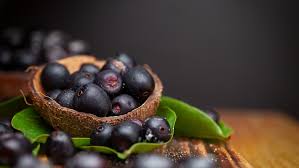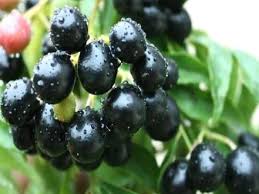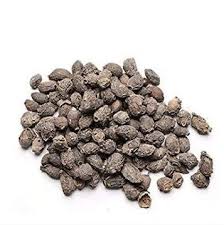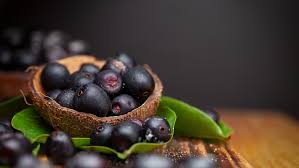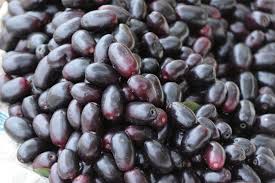Inflammation is a natural immune response to injury or infection, but chronic inflammation can lead to various health issues such as arthritis, heart disease, and digestive problems. Ayurveda, the ancient science of holistic healing, offers natural remedies to help reduce inflammation and restore balance in the body. In this article, we’ll explore the top Ayurvedic remedies for inflammation, including herbs, spices, and lifestyle practices that have been used for centuries to promote healing and reduce pain.
Top Ayurvedic Remedies for Reducing Inflammation: Natural Solutions for Healing
Chronic inflammation is a major factor in many diseases and can negatively affect your overall health and well-being. While medications may offer temporary relief, Ayurveda provides long-term, holistic solutions that focus on addressing the root causes of inflammation. By incorporating Ayurvedic herbs, dietary adjustments, and lifestyle changes, you can support your body’s ability to reduce inflammation and heal naturally.
Understanding Inflammation in Ayurveda: The Role of Doshas In Ayurveda, inflammation is often linked to an imbalance in one or more of the three doshas—Vata, Pitta, and Kapha. Each dosha governs specific bodily functions, and when out of balance, they can lead to conditions like inflammation. For instance:
- Pitta dosha, which governs heat and metabolism, is typically associated with inflammatory conditions like arthritis, skin irritation, and ulcers.
- Vata dosha, linked to movement and dryness, can cause inflammation due to poor circulation or dehydration.
- Kapha dosha, responsible for stability and structure, may contribute to inflammation due to excess mucus and fluid retention.
Anti-Inflammatory Herbs in Ayurveda Ayurveda uses various herbs known for their anti-inflammatory properties. These herbs work by calming the excess heat or inflammation in the body, improving circulation, and restoring balance. Some of the top Ayurvedic herbs for inflammation include:
- Turmeric (Curcuma longa): One of the most widely known Ayurvedic herbs, turmeric contains curcumin, a compound with powerful anti-inflammatory effects. It helps reduce inflammation in joints, tissues, and organs.
- Ashwagandha (Withania somnifera): Known for its adaptogenic properties, ashwagandha helps the body manage stress, which can contribute to inflammation. It also supports overall immune function.
- Ginger (Zingiber officinale): Ginger is commonly used in Ayurvedic medicine for its ability to soothe inflammation, particularly in the digestive system. It also helps reduce pain and swelling associated with inflammatory conditions.
- Boswellia (Boswellia serrata): Also known as Indian frankincense, boswellia is highly effective in reducing inflammation, particularly in the joints, and is often used in managing arthritis and other inflammatory conditions.
- Triphala: A traditional Ayurvedic herbal blend, triphala is known for its detoxifying and anti-inflammatory properties, helping to improve digestion and reduce inflammation in the digestive tract.
Ayurvedic Spices for Inflammation Reduction Ayurveda also incorporates the use of specific spices in daily cooking to reduce inflammation and support digestion. Some of these include:
- Black Pepper: Known for enhancing the absorption of other anti-inflammatory herbs like turmeric, black pepper also has its own inflammation-reducing properties.
- Cinnamon: This warm spice helps regulate blood sugar levels and has anti-inflammatory and antioxidant effects.
- Fenugreek: A powerful spice that helps balance blood sugar and reduces systemic inflammation.
Ayurvedic Oils and Topical Remedies Inflammation can also be treated through external applications. Ayurvedic oils and pastes made from anti-inflammatory herbs can be applied topically to relieve swelling, pain, and redness. Some effective oils include:
- Sesame Oil: Used for massage, sesame oil has anti-inflammatory properties that help soothe sore muscles and joints.
- Eucalyptus Oil: Known for its cooling and pain-relieving effects, eucalyptus oil is often used in Ayurvedic treatments for muscle inflammation and joint pain.
- Neem Oil: Neem has powerful anti-inflammatory and antibacterial properties, making it useful for skin conditions and infections that cause inflammation.
Dietary Adjustments to Support Inflammation Reduction Ayurveda emphasizes the importance of a balanced diet that promotes health and reduces inflammation. A diet that includes anti-inflammatory foods can complement Ayurvedic remedies and boost your healing process. Some dietary suggestions include:
- Include anti-inflammatory foods such as leafy greens, berries, and healthy fats like olive oil and ghee.
- Avoid excess spicy, sour, or fried foods, which can aggravate Pitta and lead to inflammation.
- Stay hydrated by drinking warm water throughout the day to help cleanse the body and reduce inflammation.
Lifestyle Practices for Inflammation Relief Ayurvedic practices go beyond herbs and diet; they also include lifestyle changes that support the body’s natural healing processes. These practices include:
- Abhyanga (Self-Massage): Daily oil massage can stimulate blood flow, reduce muscle inflammation, and relax the body.
- Pranayama (Breathing Exercises): Deep, controlled breathing helps reduce stress, which is a key contributor to chronic inflammation.
- Yoga: Specific yoga poses, such as twists and stretches, help improve circulation, reduce joint pain, and balance the body’s energies.



